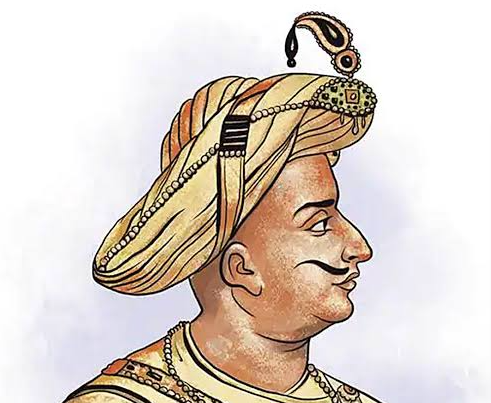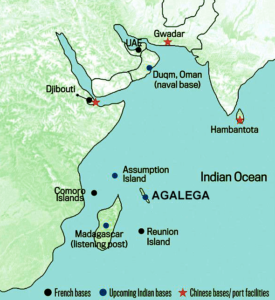Reasons for the Outbreak of the Anglo-Mysore War :
- Rapid Territorial Expansion: In a few years under Haider Ali and later Tipu Sultan Mysore’s boundary stretched from Krishna River to North and Malabar Coast North West which brought Mysore into conflict With Hyderabad, Maratha, English and also the city of Travancore.
- Anglo-French rivalry further fueled the situation where Britishers started to doubt the intention of Haider Ali when he took the help of the French in creating an Arsenal Dindigul.
- Mysore’s control over the rich trade of the Malabar coast was seen as a threat to the English trade in black pepper and cardamom.
- In 1785 Tipu Sultan imposed a ban on the export of pepper and cardamom from the post within his kingdom.
- In 1788 he explicitly prohibited trade with English traders.
- Tipu Sultan and Haider Ali aimed to establish a centralise military state with a desire to control the entire south along with the Maratha area. It was seen as a threat by Nizam and Maratha who colluded with the English to fight with MySORE.
First Anglo-Mysore War (1767-1769):
- Due to territorial disputes and differences with Marathas, a fight began between the two in which English and Nizam also became parties against Haider Ali.
- But soon Haider Ali offered peace to Maratha and Nizam and they accepted and drew the war.
- After this Hiader Ali attacked English possessions in Madras and it resulted in the surrender of the Britishers.
- The first Anglo-Mysore War ended with the Treaty of Madras as per the treaty prisoners were exchanged and Haider Ali restricted the British captured area. English promised that in future, if Haider Ali was attacked by any other power, then the British would come to his aid.
Second Anglo-Mysore War:
- In the second Anglo-Mysore War Marathas attacked Mysore in 1771 but the British did not come in support of Mysore. At this time Haider Ali realised the French were more true to their words.
- At the time of the American Civil War, Haider Ali supported the French and provided them access to Mahe port. It initiated the war between Mysore and the English.
- Haider Ali died in 1772 and his son Tipu Sultan Continued the war for the next it ended with the treaty of Mangalore where both sides gave up acquired territories to each other.
Third Anglo-Mysore War 1790- 1792
- In the third Anglo-Mysore War on the issue of jallikotal Tipu Sultan attacked Travancore, soon Britishers came to support Travancore and successfully mobilised Nizam and Maratha against Tipu.
- Cornwallis took charge of the Battle and exacted a crushing defeat on Tipu.
- The war ended with a humiliating treaty of Srinagpatnam where Tipu surrendered half of the Mysorian territory to the English and all allies also paid 3.3 crore rupees as war indemnity to the British.
Fourth Anglo-Mysore War:
In 1798 Wallesly was appointed new Governor General. He was imperialist to court. He falsely charges Tipu with plotting against the English.
He offered the option of a subsidiary alliance to Tipu Sultan which he refused and initiated the 4th Anglo-Mysore War.
Tipu sultan died defending his capital, Mysore was placed under the Wodeyer Dynasty and it was brought under the Subsidiary alliance system of Wellesley.
Tipu Sultan’s Contribution
a) Use of Mysorian Rocket in the Battle of Pollilur during the Second Anglo-Mysore War.
b) Initiated coinage system and calendar.
c) He sought an alliance with Napoleon in France and became a follower of the Jacobin Club.
d) He also planted the Tree of Liberty at the capital of Srinagapatnam.
e) He also donated to Sringari Sharda Peetham.

https://www.drishtiias.com/to-the-points/paper1/anglo-mysore-wars
https://testbook.com/ias-preparation/ncert-notes-first-and-second-anglo-mysore-wars
- 2019, GS Paper I: Analyze the strategic significance of the Anglo-Mysore Wars in the context of British colonial expansion in India. How did these wars alter the balance of power on the Indian subcontinent?
- 2018, GS Paper I: Discuss the role of Tipu Sultan in the Anglo-Mysore Wars and evaluate his contributions to Indian resistance against British colonialism. How did his policies and military strategies influence the outcome of these conflicts?
- 2021, GS Paper I: Evaluate the economic and political consequences of the Anglo-Mysore Wars on the Mysore Kingdom. What were the implications for the British East India Company’s governance and policies in southern India?
- 2017, GS Paper I: The Anglo-Mysore Wars were pivotal in the establishment of British supremacy in India. Critically assess the factors that led to the repeated conflicts between the British and Mysore and the eventual downfall of Mysore under Tipu Sultan.
- 2020, GS Paper II: Examine the role of alliances and diplomacy during the Anglo-Mysore Wars. How did the British and Mysore rulers use alliances with Indian and foreign powers to further their interests?
https://mateenahaya.com/category/blog/
https://mateenahaya.com/wp-admin/

Pingback: how to get admission in top best 100 universities in USA